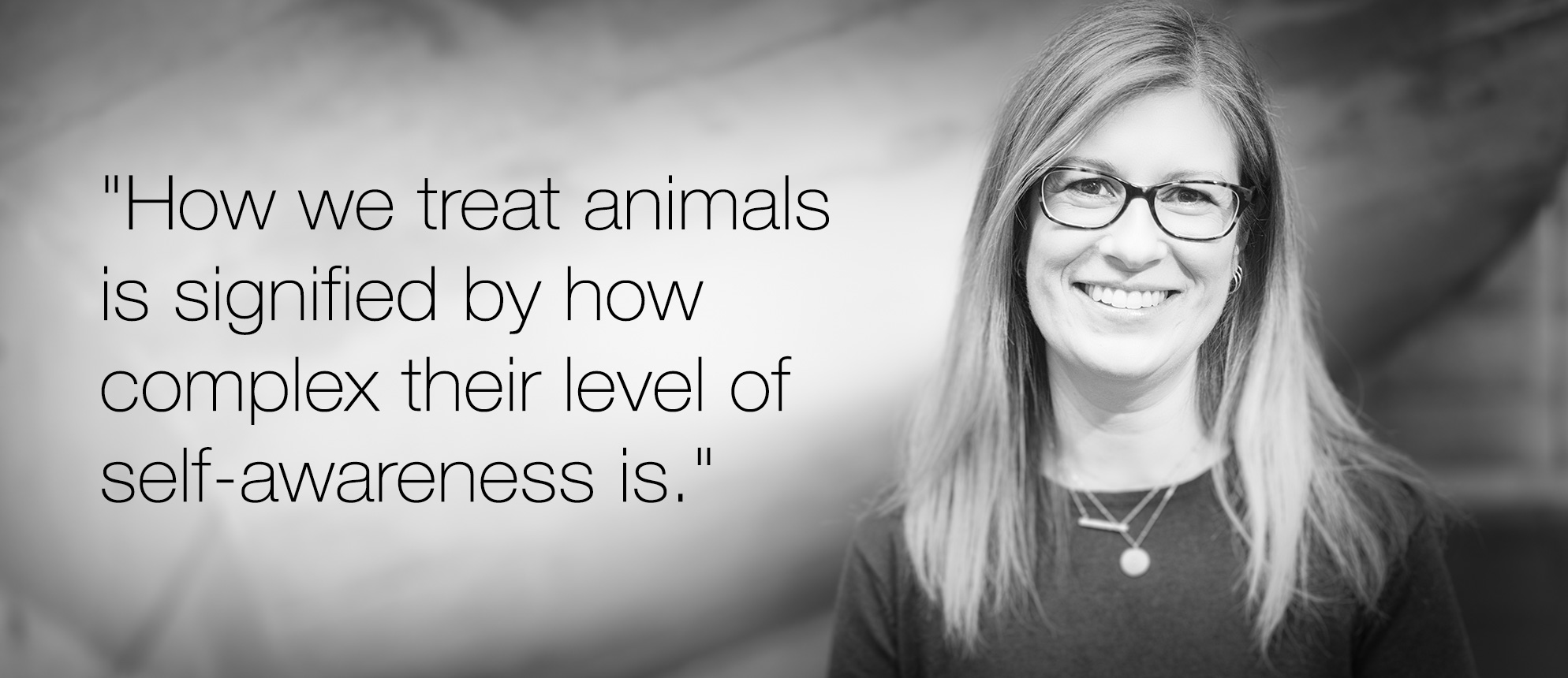- Future Students
- Current Students
- Faculty
- Staff
- Alumni
- Others
Exploring business ethics and animals

Cover Art Courtesy of Palgrave/Macmillan.
With her extensive history teaching philosophy, University of Guelph-Humber instructor Dr. Natalie Evans has for a long time been fascinated by the study of both business ethics and animal ethics — but only recently did she begin to see how closely the two areas of applied ethics were connected.
Dr. Evans has just published the new book, Animals and Business Ethics, a collection of scholarly work from a global group of academics who are exploring the ethical issues arising from the use of animals in a variety of business practices.
Bridging philosophy, sociology, and business, Dr. Evans’ new volume addresses topics including animal suffering and emotions, corporate responsibility for animal welfare, and the overall commodification of animals.
Once Dr. Evans began researching the relationship between business and animal ethics, she started to realize just how important the subject was — and how little it had been explored in an academic context.
“For one thing, nobody has really done this — there’s a big gap in the literature,” says Dr. Evans, an adjunct faculty member in the University of Guelph’s philosophy department and an instructor in the University of Guelph-Humber’s Media and Communication Studies and Business programs.
“No one had applied major business ethics theories like the stakeholder theory to animals before. Once I realized that nobody was writing about it, I thought that was so odd — because so many businesses use animals. The more I thought about it, I started to think that in fact our economy is animal-based — think of how closely related the agriculture industry is to all other industries, for instance.
“I realized this was a huge subject that no one had really done work on.”
Exploring a variety of ethical questions
In assembling her book, Dr. Evans wanted a cross-disciplinary blend of approaches and perspectives on a variety of issues relating to the treatment of animals in a business context.
As a result, the book features chapters on such wide-ranging topics as cultivating plant-based businesses, regulation in animal agriculture, and even the high stress shouldered by human workers whose jobs require them to treat animals inhumanely, while Dr. Evans co-authored a chapter exploring the ethical questions around gene-editing technology.
A consistent thread throughout the book is that these ethical questions ultimately have consequences not just for the animals, but for businesses, the environment, and for everyone in society at large.
“What I like about a lot of the book is that it establishes a connection between environmental concerns, human-related concerns, and animal concerns,” says Dr. Evans, who publishes under the name Natalie Thomas.
“It shows that these things are interconnected in important ways.”
For Dr. Evans — who is now working on a new textbook on Canadian media ethics, with support from the University of Guelph-Humber’s Research Grant Fund — the research into animal ethics comes from a personal place. A fellow at the Oxford Centre for Animal Ethics, Dr. Evans has had a lifelong affinity for animals and fondly recalls her rural upbringing spending time with dogs, cats, and even the cows at a neighbour’s farm.
To that end, she hopes her book might inspire more people to begin thinking more critically about the ethics of how animals are viewed and treated by businesses.
“Practically speaking, I think this book has a lot of implications for any kind of animal-related industry,” says Dr. Evans, whose book was published as part of the Palgrave Macmillan Animal Ethics Series.
“I hope this book motivates people to look at business ethics and finally apply the theories we already have to animals.”

